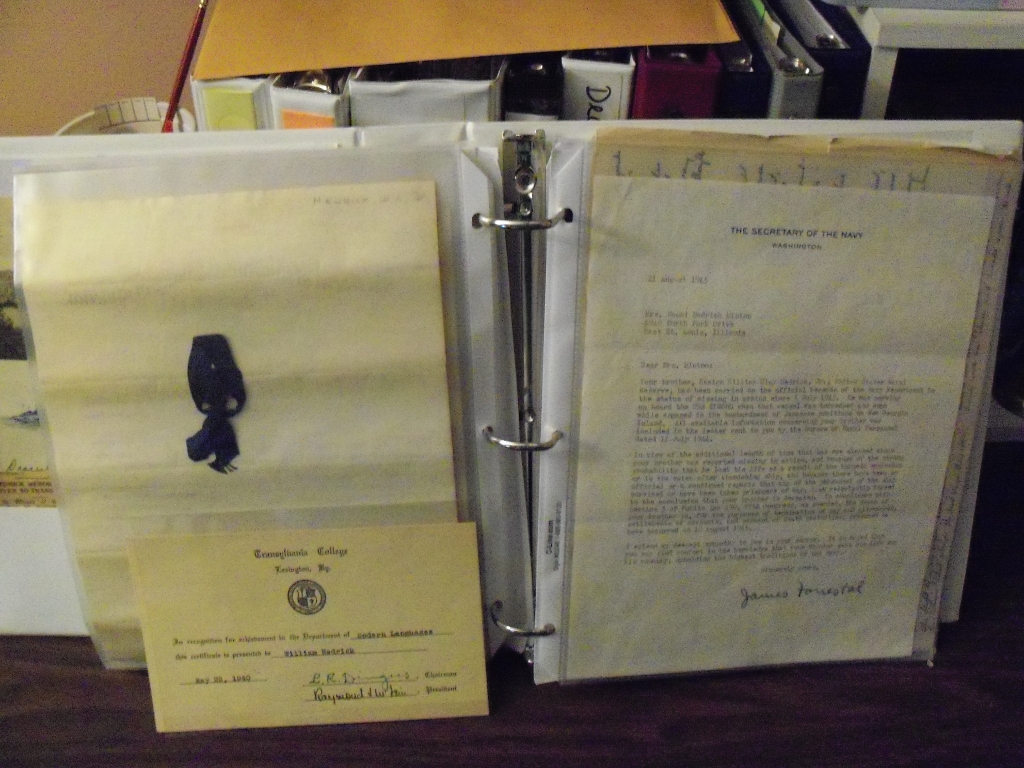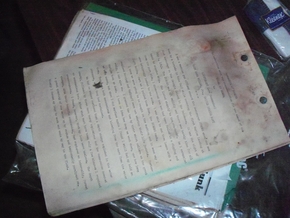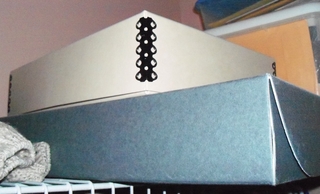If the only issue you have is aging of the paper, the solution is simple. There are many companies that provide archival grade materials such as those used in museums and libraries. These materials help to preserve precious documents and photographs. When I received a box of letters, photographs and other documents that had belonged to my great-uncle Billy, I used two of these suppliers to get hold of acid-free archival boxes and acid-free plastic page protectors. It's not cheap, but not super expensive either. You need to shop around and compare prices between companies to get the best price. It's well worth the cost at any rate, to be able to slow down or stop degradation of paper goods. The two companies I use are Gaylord Brothers and Light Impressions. See the links below:
Gaylord Brothers: http://www.gaylord.com/
Light Impressions: http://www.lightimpressionsdirect.com/
There are other archival supply companies of course, but these are the two I am most familiar with. You may want to check locally to see if any office suppliers carry similar materials, and this would save on shipping.
All of Billy's letters, his officer's commission and hand written poems are now safe in page protectors to insure there will be no further damage from the elements. These are together in a 3-ring binder that I pull out from time to time when I want to be inspired, and to remember why I'm pursuing this project in the first place.
Mold damage is a huge issue. When I met Fitz Miller in Pensacola recently, he shared some documents of his father's (Hugh Barr Miller, Jr.) that had barely survived Hurricane Ivan in September of 2004. Mold was all through them and the binder was rusted shut. I had to break the rings with pliers to extract the papers. I have a bit of work to do before I can even begin to scan or extract any information from them that might be useful for Stephen Harding and his book. Thanks to a little bit of research and conferring with conservation specialists at the University of Kentucky Special Collections and a web site I was referred to, I know what I need to do. The web site is below, and offers a lot of free information to anyone with preservation needs:
Northeast Document Conservation Center: http://www.nedcc.org/free-resources/preservation-leaflets/overview
As soon as we got home from Pensacola, I knew to put the binder and other documents in the freezer. Encased in a large plastic bag, I kept them there for most of a week. The usual requirement for freezing is 2-3 days, but I wanted to make sure the spores were dead as they could be. I am just beginning to work with these documents, so there is still much to do.
Just because the mold is dead doesn't mean the papers are safe to work with. No one wants to breathe in mold spores, dead or alive they can cause damage to the lungs. The plan to prepare them involves a nice warm day, a large table, my carport and a few other pieces of equipment. I will need a pair of latex-free nitrile gloves, face mask and my trusty Dyson vacuum cleaner with a brush attachment. It's recommended to use a vacuum with a HEPA filter, but the Dyson will have to do. Each page will need to be vacuumed and then inserted into a page protector. From that point, they should be safe enough for me to scan and read.
If you have any other questions concerning documents or other materials of your own, I would be happy to help you find a way to keep them from becoming moth fodder. The life of paper is short, but there are ways to preserve your family history for generations to follow.
For more information on preservation of documents, check out this link to the Smithsonian Institute: http://www.si.edu/mci/downloads/RELACT/paper_documents.pdf
Tammi




 RSS Feed
RSS Feed